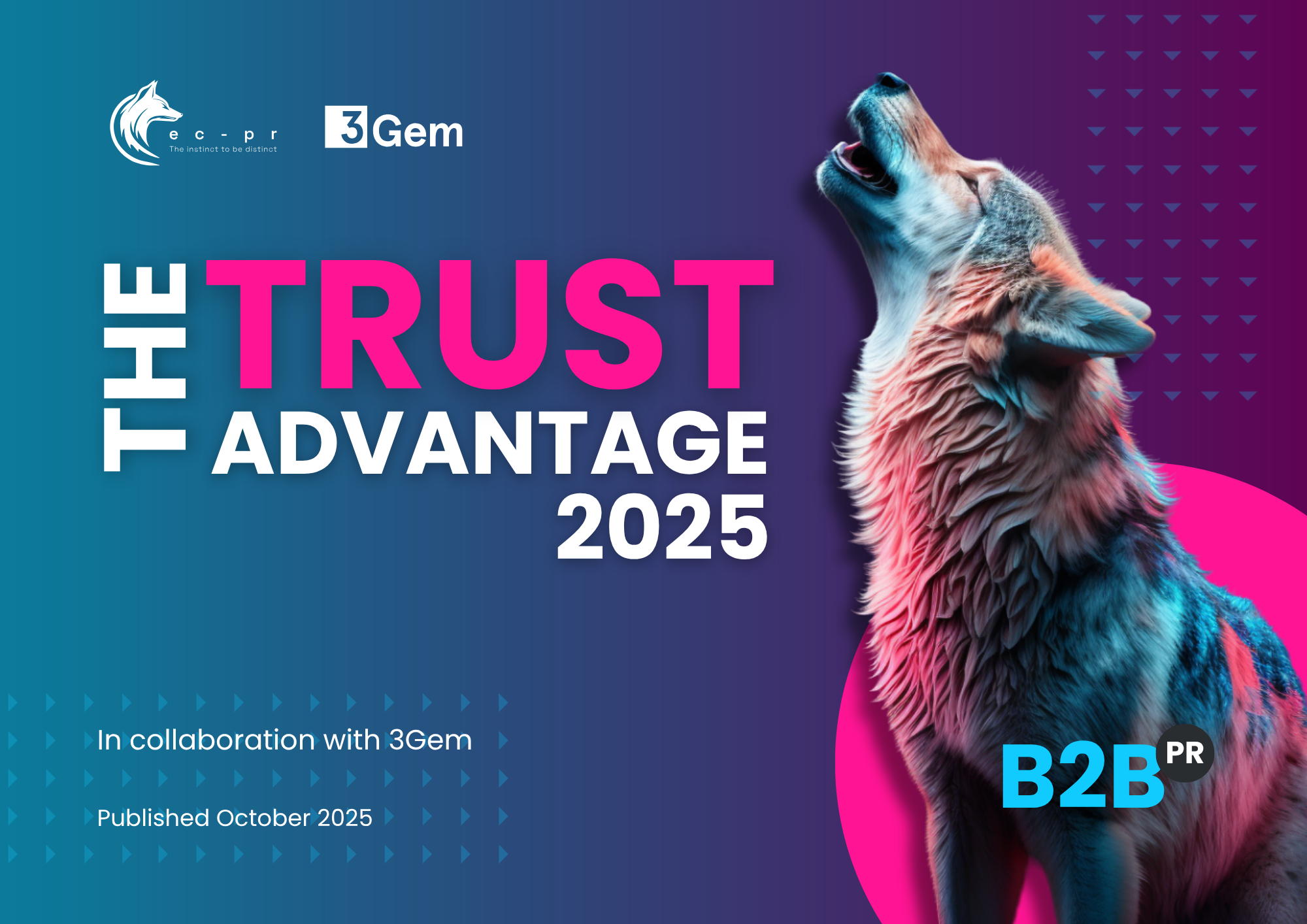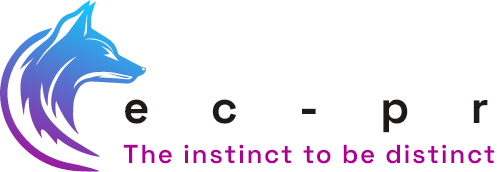
Looking to shorten your sales cycle? Start by building trust
Trust is the result of a long-term relationship that develops when an organisation consistently behaves in a reliable, authentic, and transparent way across every digital, physical, and human touchpoint. Without trust, even engaged prospects slow their pace. Deals drag on, and with no credibility to accelerate them, opportunities stall before reaching contract stage.
Why trust reduces complexity in buying groups
In complex B2B purchases, decisions rarely rest with one person. Procurement, IT, compliance and senior executives each have their own concerns. When those concerns are not addressed, deals stall. As Jo Knight explained during EC-PR’s webinar The trust gap that is killing your sales pipeline, “You need to build trust with each one of the stakeholders involved in the deal. It’s naïve to think that if you’ve just built trust with one, the rest will follow.”
The Trust Advantage, a study carried out by EC-PR based on responses from more than 200 senior technology leaders, reinforces this notion. Seven in ten buyers said they had rejected a vendor because they did not trust them, even when the solution technically fit their needs.
To prevent this, buyers look for proof points: 49% rely on transparent pricing, 48% on case studies and 45% on compliance credentials. Over half also validate decisions through referrals and recommendations. These signals give hidden buyers — from finance to operations — the confidence to move forward, speeding up consensus across the group.
How thought leadership accelerates agreement
Trust is not built by product brochures. It grows when vendors share insight that buyers see as independent and useful. Nicola Peck, Director of Client Success at Coleman Parkes Research, highlighted during the webinar that her firm’s research shows decision-makers value thought leadership most when it is practical, original and targeted. Content with those qualities, she explained, “really aligns the buying unit so it can actually accelerate the decisions that they’re trying to make.”
This alignment matters because different functions often start with different priorities. Finance may want return-on-investment clarity, engineers look for technical assurance and compliance teams need risk addressed. Strong thought leadership becomes a single reference point, as it addresses all these needs implicitly and explicitly without sounding like a sales pitch. By offering evidence, actionable guidance and fresh perspective, it reduces friction and builds confidence across the group.
The Trust Advantage data supports this. Nearly half of buyers said proof signals such as case studies and compliance credentials are decisive in building confidence. When these are embedded into thought leadership, they not only inform but also reassure, giving every stakeholder a reason to move forward.
Practical ways to keep momentum
Accelerating sales cycles does not require making concessions like discounts at the first sign of indecisiveness. Proof points such as testimonials, analyst recognition and detailed case studies provide the external reassurance that speeds decisions.
The Trust Advantage found that 38% of buyers would actively consider a lesser-known vendor in a downturn if credibility was established early. This shows how trust not only levels the playing field but also shortens the time it takes to convert interest into commitment.
Peck stressed the need for consistency across channels, noting that “thought leadership can really be atomised. Start off with small snippets that have key insights at the beginning of the buyer’s journey and see what engagement you get as they move through.” By repurposing content in this way, every stakeholder encounters the same signals of credibility. Repetition becomes reinforcement, helping groups align and reach decisions faster.
Trust as a time-saver in every deal
Deals don’t stall because buyers enjoy delay. They stall because something vital is missing. When trust fills that gap, hesitation gives way to conviction and long cycles break down into shorter, more decisive journeys. Trust cuts through pauses, shortens questions and brings decisions forward. The clock moves faster when buyers believe.

The Trust Advantage
What really makes buyers say yes?
Half of B2B decision-makers rank trust above price, innovation and delivery.
Get The Trust Advantage report and stop trust gaps from costing you deals.

The Trust Advantage
What really makes buyers say yes?
Half of B2B decision-makers rank trust above price, innovation and delivery.
Get The Trust Advantage report and stop trust gaps from costing you deals.
Subscribe to our updates
Stay up to date with the latest insights, case studies and PR guides.

